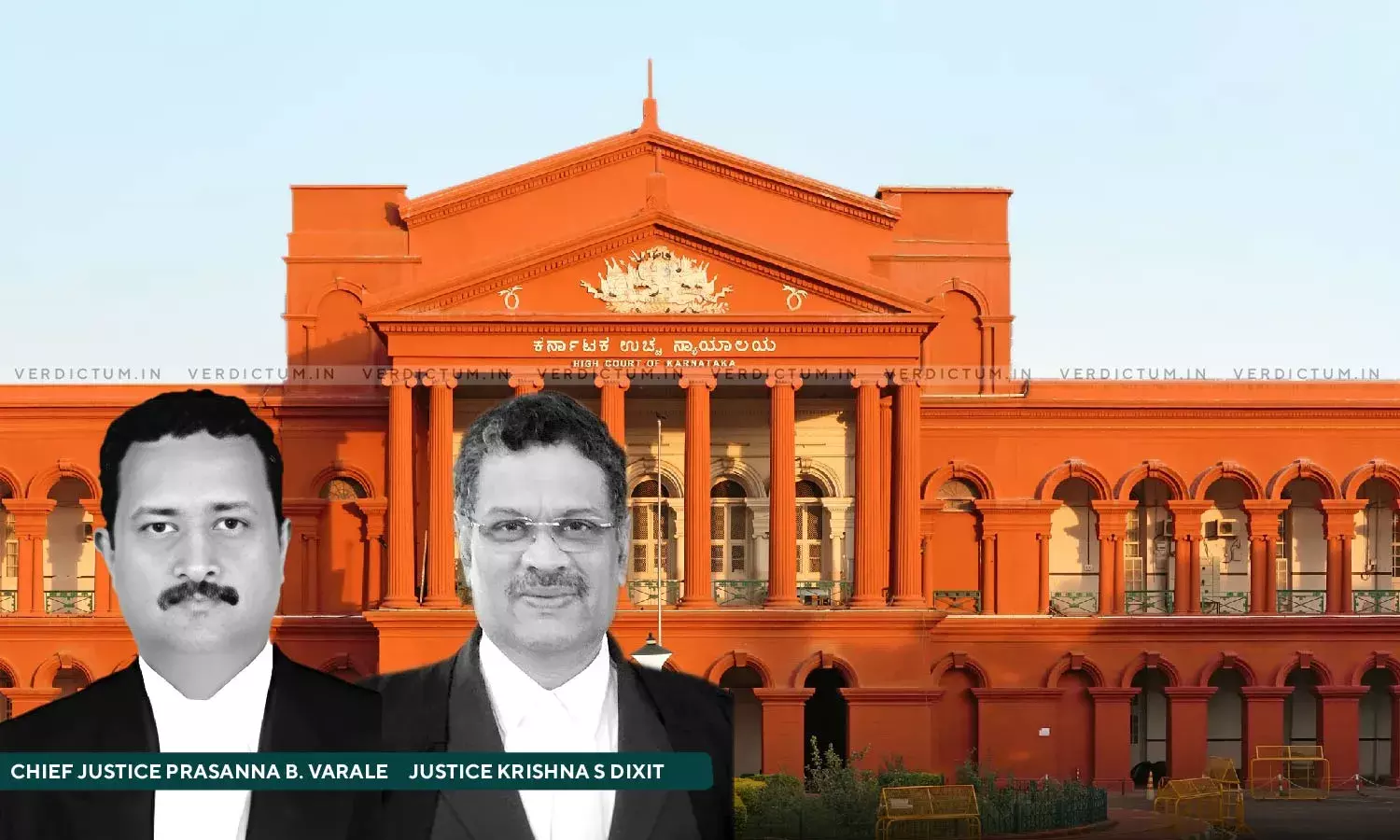Writ Of Prohibition Cannot Be issued In Anticipation On Par With Anticipatory Bail: Karnataka High Court

The Karnataka High Court held that a writ of prohibition could not be issued in anticipation on par with the criminal courts granting anticipatory bail in the absence of infringement of a right or at least a well-founded apprehension of infringement. The Court dismissed the Petition seeking writ of prohibition against the Respondent authorities from issuing notices and orders to the Petitioners/landowners.
The Bench headed by Chief Justice Prasanna B Varale and comprising Justice Krishna S Dixit noted, "In the absolute absence of any action, one cannot say that some action is contemplated at the hands of the official Respondents discharging public duties and that action may injure the citizens and therefore, a Writ of Prohibition should issue in anticipation, almost on par with the criminal courts granting anticipatory bail."
The Bench observed, "The starting point thus must be taken to be not a mere accrual of the right namely right not to be troubled by the officials, but the infringement thereof or at least a well founded apprehension of infringement".
Advocate Anirudha R Nayak appeared for the Petitioners, and Government Advocate S.S Mahendra appeared for the Respondents.
Petitioner no 1 was a private limited company incorporated under provisions of the Companies Act. The Petitioners dealt in signal, sugarcane, and allied industrial activities. The Petitioners approached the Court by way of a Writ Petition seeking prohibition against the Respondent Authorities to cease and desist from creating any impediment by the issuance of notice on the ground of production of sugarcane juice and syrup by the Petitioner no 2 and production of ethanol by Petitioner no 1. The Petitioners contended that they were being troubled by the Respondents by issuing unsustainable orders and notices.
The Court noted that the prayers in the Petition are wide, and if such prayers are granted, it would render statutory functionaries practically dysfunctional. The Court observed that the Petitioners have structured their pleadings in an anticipatory way based on their bad experiences.
The Court held that the writ petition is to public law what an order if injunction is in the realm of private law. The right to sue only arises when there is an accrual of the right asserted and its infringement. The Court further emphasized that at least an unequivocal threat to infringe by the opposite party must be substantiated.
"Broadly stated, a Writ of Prohibition is to the field of public law what an order of injunction is to the realm of private law. There can be no 'right to sue' until there is an accrual of the right asserted in the suit and its infringement; at least a clear & unequivocal 'threat to infringe' that right by the defendant, needs to be substantiated", the Bench noted.
Furthermore, the Court held that a suit cannot be initiated on an inchoate cause of action. Therefore, the Court held that there cannot be a writ of prohibition against the discharge of official functions enjoyed under statutes. Accordingly, the Court dismissed the Petition.
Cause Title: M/S Askins Biofuel Private Ltd v Union Of India
Click here to read/download Order

